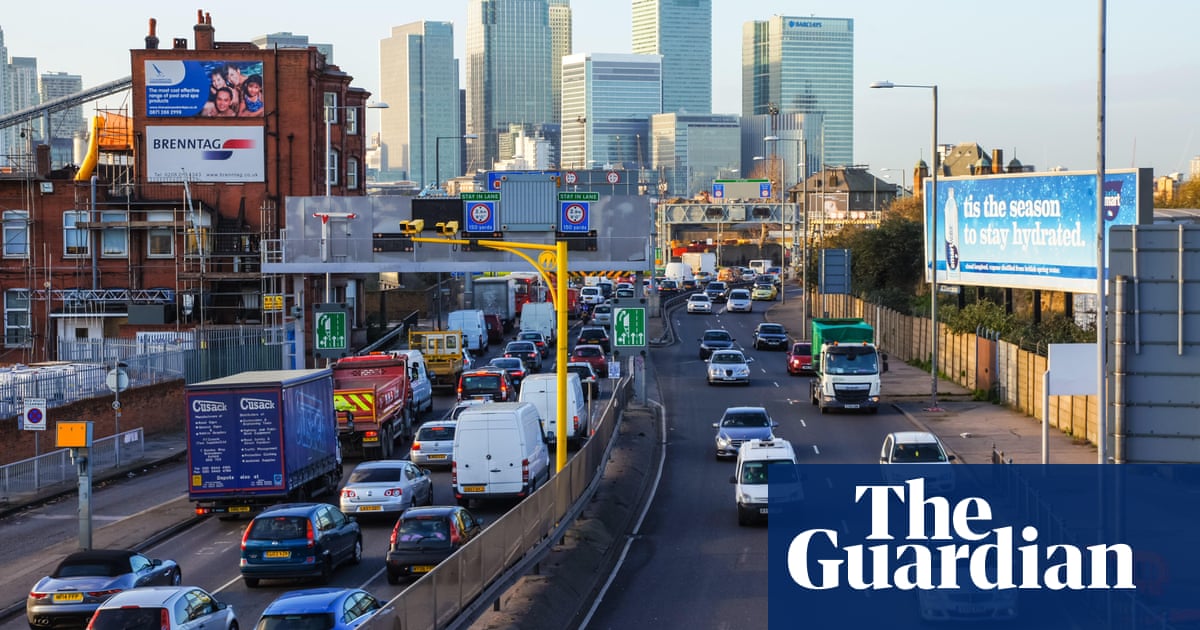
Greenhouse gas emissions fell slightly in 2022, new government figures reveal, with homes and transport remaining the highest emitting sectors.
The emissions for the territorial UK were equivalent to 406.2m tonnes of CO2, down 3.5% from 2021 and 50% from 1990.
Homes and transport contributed the most to the problem, with domestic transport responsible for 28% of greenhouse gas emissions, and homes and product use 20%. Agriculture was responsible for 12%, electricity supply 14% and industry 14%. Fuel supply was responsible for 8%, and waste 4%. Land use and forestry created 0.2% of greenhouse gas emissions.
Domestic transport emissions rose 2% year on year, but government officials mostly attributed this to a bounce-back from the coronavirus pandemic. There was a significant drop in transport emissions in 2020, when people stayed at home due to lockdowns, and travel has not yet recovered to pre-2020 levels.
Government policies, such as scrapping high-speed rail projects, building more roads and failing to ensure that rail travel is as reliable and affordable as driving, mean that emissions are unlikely to fall to levels needed to reach net zero, experts have said.
Emissions from buildings fell by 13%, but this is mostly because the unseasonably warm year meant that people used less heating, as well as high energy prices causing people to cut back on their use, according to the government figures.
Experts said that government policies meant this fall was unlikely to be sustained, particularly as ministers are expected to drop targets for heat pumps, and home insulation is hitting record low rates.
Doug Parr, the policy director at Greenpeace UK, said: “Any reduction in emissions is welcome news, but this is no time to be complacent. Homes and transport remain the biggest emitters, with stubbornly high levels persisting, and the plans for dealing with them don’t cut the mustard.
“Building insulation rates dropped to an all-time low, and yet the government looks set to roll back policy on cleaning up heating. Similarly they overturned targets for electric vehicles and allowed disinformation about electric vehicles to grow. This is not a moment for celebration, but to realise how much more there is to do.”
The Climate Change Committee, the UK’s independent watchdog that is tasked with ensuring the country meets emissions goals, has said that the country is not on track to meet the its nationally determined contribution under the UN process for a 68% reduction in emissions by 2030.
Maya Singer Hobbs, senior research fellow at the Institute for Public Policy Research, added: “Transport and homes remain the largest contributors to the UK’s greenhouse gas emissions, but they are two of the easiest sectors to make progress in. Making active travel more accessible, increasing funding for public transport, rolling out electric vehicles, retrofitting homes with heat pumps and insulation are all solutions which in addition to bringing down emissions would also create jobs and cut bills. Rishi Sunak’s net zero delay, announced at the end of last year, will have a tangible effect in slowing our progress.”
The energy security secretary, Claire Coutinho, said: “The UK is the first major economy – of the top 20 countries – to halve its emissions. This is an enormous achievement by itself but also because we have done this in a pragmatic way – growing our economy by 80% at the same time and protecting family finances.
“We have also increased our renewables electricity generation from just 7% in 2010 to nearly 50% now. With some of the most ambitious targets in the world, we should be proud that we’ve over-achieved on our carbon budget for the third time in a row. We will continue to meet out targets but in a pragmatic way that doesn’t clobber extra costs onto hard-working families.”











